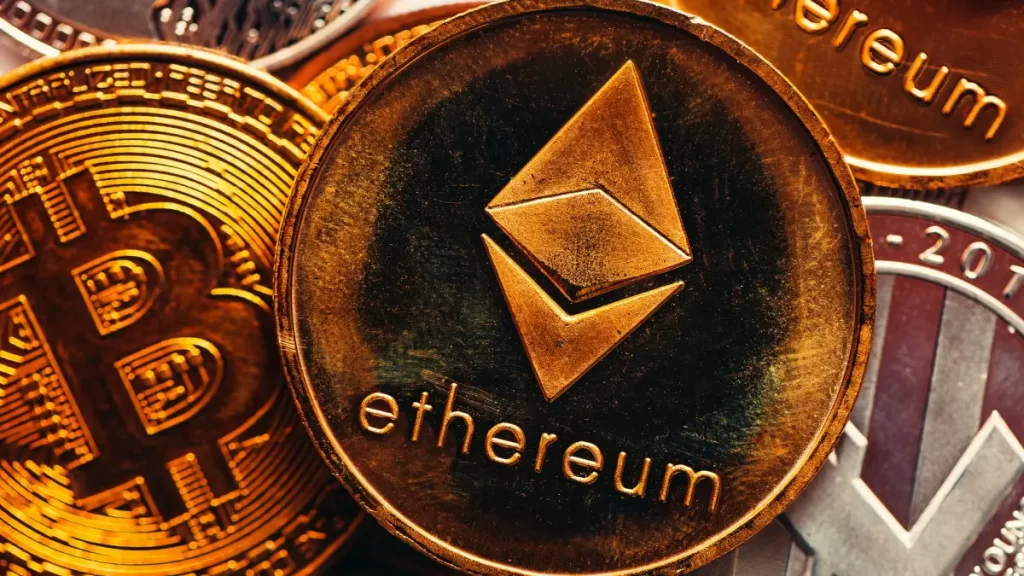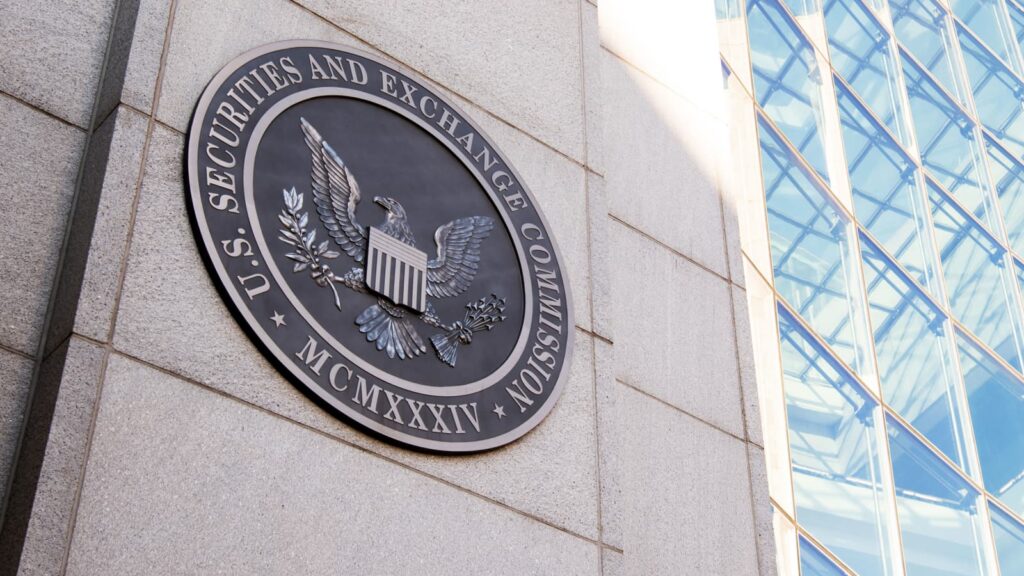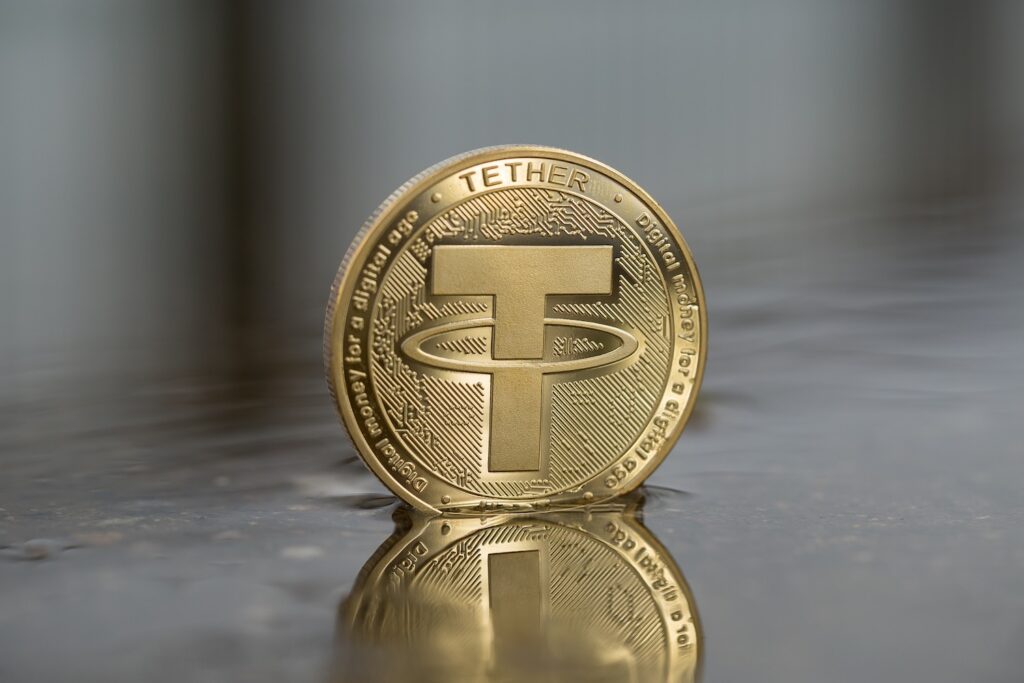On July 4 bitcoin experienced a dip of over 2%, testing a key support line for the first time since October 2023.
Data from Cointelegraph Markets Pro and TradingView revealed new local lows of $57,885 on Bitstamp following the latest daily close.
This decline was driven by a lack of positive sentiment and consistent selling pressure from spot markets, creating a challenging environment for Bitcoin bulls.
CoinGlass reported that 24-hour Bitcoin long liquidations approached $60 million at the time of writing.
Popular trader Skew noted that BTC/USD had crossed its 200-day moving average (MA) for the first time in ten months.
“So far since trend rejection & reversal around $63.8K spot selling has been the main driver of this trend,” he explained on X.
“So in order for this HTF MA to actually act as a systematic trigger for the market we need to see market demand & reversal signs. Else volatility & momentum pick up to the downside.”
At the time of writing, the 200-day MA was at $58,400, slightly below the spot price after a brief low timeframe bounce.
READ MORE: Bitcoin Drops Below $60,000 Amid Potential $9 Billion Mt. Gox Payout and Whale Activity
Looking at the broader picture, trading suite DecenTrader highlighted a significant amount of long liquidations closer to $50,000 if the price continues to decline.
“If Bitcoin does breakdown then $51k – $52k remains the area where there is a significant amount of 3x, 5x, and 10x longs liquidity. To the upside, the shorts liquidity is at $76k-78k,” it noted.
Charles Edwards, founder of Capriole Investments, pointed to clear factors influencing Bitcoin’s recent downside.
Alongside data from on-chain analytics firm Glassnode, he observed significant sell-side pressure throughout the year.
The launch of United States spot Bitcoin exchange-traded funds (ETFs) in January had failed to absorb this pressure.
“This is why we haven’t mooned yet. Saylor, Michael Dell, ETFs. It’s all noise,” he told his followers on X.
“When you look at the data of the 4 most important players in Bitcoin, we have net flows equivalent to $24B being dumped on the market in 2024.”
Edwards emphasized that ETFs are not the only demand factor in the current market.
To submit a crypto press release (PR), send an email to sales@cryptointelligence.co.uk.
On July 4, Bitcoin‘s price briefly dropped to $57,874 on Coinbase, marking its first dip below $58,000 in over two months.
Since then, it has stabilized at $58,964 but remains down 3.4% for the week, according to TradingView.
This slump is attributed to the liquidation of leveraged long positions.
Data from CoinGlass reveals that more than $54.9 million in Bitcoin long positions were liquidated within the past 24 hours.
“Nearly $60 million in Bitcoin longs have been wiped in the last 24 hours,” states CoinGlass.
Ether traders also faced significant losses ahead of the anticipated launch of several spot Ether ETFs, expected by mid-July. In total, $57.9 million in Ether long positions were liquidated during the same period.
Much of the blame for Bitcoin’s broader price pullback is attributed to the defunct Japanese crypto exchange Mt. Gox, which is set to begin repayments of approximately $8.5 billion worth of BTC to its creditors starting in early July.
However, some analysts believe these repayments may not have as severe an impact on Bitcoin as anticipated.
Other major cryptocurrencies and altcoins also experienced sharp declines during Bitcoin’s brief dip. Ether dropped 4.5%, briefly hitting $3,145 during a sharp sell-off at 2:00 am UTC on July 4.
BNB fell 6%, decreasing from $573 to $539 at the time of writing. Solana saw a 10.3% decline, falling from a weekly high of $154 to $136.
Meanwhile, mentions of “buy the dip” surged across social media platforms.
The use of this phrase has doubled on Reddit, X, and 4Chan over the last two days.
These recent movements in the crypto market highlight the volatility and significant impact of leveraged positions on price fluctuations.
The upcoming Mt. Gox repayments and the launch of Ether ETFs are key events that market participants are closely monitoring.
To submit a crypto press release (PR), send an email to sales@cryptointelligence.co.uk.
A cryptocurrency wallet associated with the German government transferred over 3,000 Bitcoin, valued at more than $172 million, to various crypto exchanges and a separate wallet.
On July 4, blockchain investigator PeckShieldAlert reported a substantial outbound transfer of 1,300 Bitcoin from a wallet labeled as belonging to the “German Government (BKA).”
These Bitcoin, worth $75 million, were distributed among three major crypto exchanges: Coinbase, Kraken, and Bitstamp.
Further investigation by Cointelegraph revealed that the German government wallet also transferred an additional 1,700 BTC to a different wallet address simultaneously.
The PeckShield team later confirmed this to Cointelegraph, stating:
“Total 3K out (from German gov’t labeled wallet), including 1.3K -> CEXs and 1.7K -> (to a wallet address) 139PoPE1bKQam8QJjhVjYDP47f3VH7ybVu.”
According to data from onchain analytics platform Arkham Intelligence, while the initial 1,300 BTC were sent to centralized exchanges, the remaining 1,700 BTC were moved to a separate cryptocurrency wallet.
Over the last two weeks, the German government has transferred more than 3,000 BTC to various exchanges.
These significant transfers, alongside ongoing movements from the United States government and the approaching Mt. Gox repayments, pose a potential increase in selling pressure on Bitcoin.
Since February 2024, the wallet labeled as the German government’s has held 50,000 BTC, gradually transferring a significant portion of its holdings over the past few months.
Governments, including Germany, have confiscated Bitcoin and other digital assets linked to criminal activities and periodically auction off these seized assets.
In a notable precedent, the United States government has sold a large portion of Bitcoin seized from the notorious dark web marketplace Silk Road.
In 2014, Tim Draper, an American entrepreneur and Bitcoin advocate, purchased 29,656 BTC from the Silk Road seizure in an auction conducted by U.S. marshals.
These ongoing transactions highlight the continued involvement of government entities in the cryptocurrency market and their efforts to manage and liquidate seized digital assets.
To submit a crypto press release (PR), send an email to sales@cryptointelligence.co.uk.
Experts at 10x Research predict Bitcoin is set to fall below $57,000 from its current level of over $60,000 on July 4.
They believe this sharp decline may just be the beginning, potentially dropping further to $50,000. This marks a significant shift in market sentiment, attributed to a decrease in buy flows and an acceleration in sell flows.
Markus Thielen, an analyst at 10x Research, commented on the situation:
“Our data from early June already hinted at an overbought market ripe for correction.”
The sudden 5.44% fall in Bitcoin’s price has significantly impacted investor sentiment and market liquidity, with Bitcoin’s market capitalization now at $1.1 billion and a 57% increase in trading volume.
The breaking of the $60,000 benchmark is critical for Bitcoin miners and spot Bitcoin ETF buyers.
According to the 10x Research report, this price decline “could accelerate as support gets broken and sellers scramble to find liquidity.”
READ MORE: Bitcoin Drops Below $60,000 Amid Potential $9 Billion Mt. Gox Payout and Whale Activity
This sell-off coincides with the anticipated Mt. Gox repayments of $8.5 billion worth of BTC, which were expected to begin in July.
The 10x Research report noted that after breaking the $60,000 support, “only ill-informed traders are willing to buy here.”
The report maintains a cautious outlook for Bitcoin’s price, advising traders to prioritize risk management in anticipation of continued volatility. Thielen emphasized:
“We warned that this was not the time to be complacent.”
Additionally, a recent analysis from IT Tech indicates the downward trend is due to long-term holders cashing in on substantial profits.
On July 3, the spent output profit ratio (SOPR) from long-term holders exceeded a value of 10, meaning BTC was sold for at least 10 times the initial purchase price.
According to this analysis, long-term BTC holders, who typically retain their holdings for five to seven years, have contributed to the increased selling pressure in the market.
To submit a crypto press release (PR), send an email to sales@cryptointelligence.co.uk.
On July 4 bitcoin experienced a dip of over 2%, testing a key support line for the first time since October 2023.
Data from Cointelegraph Markets Pro and TradingView revealed new local lows of $57,885 on Bitstamp following the latest daily close.
This decline was driven by a lack of positive sentiment and consistent selling pressure from spot markets, creating a challenging environment for Bitcoin bulls.
CoinGlass reported that 24-hour Bitcoin long liquidations approached $60 million at the time of writing.
Popular trader Skew noted that BTC/USD had crossed its 200-day moving average (MA) for the first time in ten months.
“So far since trend rejection & reversal around $63.8K spot selling has been the main driver of this trend,” he explained on X.
“So in order for this HTF MA to actually act as a systematic trigger for the market we need to see market demand & reversal signs. Else volatility & momentum pick up to the downside.”
At the time of writing, the 200-day MA was at $58,400, slightly below the spot price after a brief low timeframe bounce.
READ MORE: Bitcoin Drops Below $60,000 Amid Potential $9 Billion Mt. Gox Payout and Whale Activity
Looking at the broader picture, trading suite DecenTrader highlighted a significant amount of long liquidations closer to $50,000 if the price continues to decline.
“If Bitcoin does breakdown then $51k – $52k remains the area where there is a significant amount of 3x, 5x, and 10x longs liquidity. To the upside, the shorts liquidity is at $76k-78k,” it noted.
Charles Edwards, founder of Capriole Investments, pointed to clear factors influencing Bitcoin’s recent downside.
Alongside data from on-chain analytics firm Glassnode, he observed significant sell-side pressure throughout the year.
The launch of United States spot Bitcoin exchange-traded funds (ETFs) in January had failed to absorb this pressure.
“This is why we haven’t mooned yet. Saylor, Michael Dell, ETFs. It’s all noise,” he told his followers on X.
“When you look at the data of the 4 most important players in Bitcoin, we have net flows equivalent to $24B being dumped on the market in 2024.”
Edwards emphasized that ETFs are not the only demand factor in the current market.
To submit a crypto press release (PR), send an email to sales@cryptointelligence.co.uk.
Ethereum developers have introduced a new Ethereum Improvement Proposal, EIP-7732, aimed at overhauling the block validation process to enhance blockchain speed and efficiency.
EIP-7732 proposes significant changes by dividing block validation into two distinct processes: consensus and execution.
This move is in response to the growing demand for improved efficiency on the Ethereum blockchain, aligning with Ethereum co-founder Vitalik Buterin’s push for faster transaction confirmation times.
A core element of EIP-7732 is the Enshrined Proposer-Builder Separation (EPBS).
This process divides block creation between the consensus proposer and the execution proposer.
The consensus proposer selects an execution proposer, who then commits to producing a valid block containing essential information, such as a payment or block hash, for the proposer.
To ensure the execution proposer fulfills their commitment, a group of validators known as the Payload Timeliness Committee (PTC) oversees the timely submission of the promised block.
By separating the consensus and execution layers, EIP-7732 aims to reduce the computational load on validators, thereby increasing network efficiency and speed.
Currently, the Ethereum blockchain requires validators to perform both roles within a short timeframe, potentially leading to inefficiencies and delays.
EPBS allows validators to immediately focus on validating consensus while deferring execution validation to a later time without compromising network performance and security.
This proposed solution also includes a trust-free exchange between builders and proposers, ensuring payment and inclusion of valid blocks without the need for middleware.
Vitalik Buterin highlighted the importance of fast transaction confirmation times in a post on June 30, stating, “One of the important properties of a good blockchain user experience is fast transaction confirmation times.”
Following the transaction fee revamp by EIP-1559 and steady block times post-Merge,
Ethereum’s transaction confirmation time has reduced to between five and 20 seconds.
However, some applications require even faster speeds, beyond the current 12-second Gasper consensus mechanism.
EIP-7732 promises faster transaction speeds, but it may necessitate another hard fork with backward-incompatible changes.
As discussions around EIP-7732 continue, the Ethereum community remains hopeful for these proposed improvements.
To submit a crypto press release (PR), send an email to sales@cryptointelligence.co.uk.
An Illinois district court judge has ruled in favor of the United States Commodity Futures Trading Commission (CFTC) in a crypto Ponzi scheme case, declaring two lesser-known altcoins as commodities.
The scheme involved Sam Ikkurty from Oregon and several of his companies.
Ikkurty defrauded victims by promising “steady returns” of 15% per year from investments in “digital asset commodities,” which included Bitcoin, Ether, Olympus (OHM), and KlimaDAO (KLIMA). The court’s order stated that OHM and KLIMA are also qualified as commodities.
“Those virtual currencies fall into the same general class as Bitcoin, on which there is regulated futures trading,” said the CFTC.
KLIMA is the governance token of KlimaDAO, a decentralized autonomous organization focused on solving “coordination” problems in climate finance. At the time of publication,
KLIMA is trading at $3.55, a sharp decline from its all-time high of $3,777 on October 21, 2021, according to CoinGecko data.
OHM is the governance token of OlympusDAO, an organization aimed at creating a community-owned decentralized reserve currency.
In a July 3 statement, the CFTC explained that Ikkurty assured prospective participants that he invested only in stable crypto assets, using embellished stories of prior successes to gain investors’ trust.
Instead of returning profits, Ikkurty “ran something like a Ponzi scheme,” repeatedly misrepresenting the fund’s performance and failing to disclose that its value had plummeted by over 98.99% in a few months.
The court order revealed that Ikkurty transferred much of the funds to early investors to prevent them from incurring losses, resulting in a $20 million shortfall for investors in the purported carbon offset program.
Additionally, the CFTC noted that Ikkurty had previously lost his entire personal Bitcoin holdings to a hack.
Judge Mary Rowland ordered Ikkurty to pay over $83.7 million in restitution and $36.9 million in disgorgement.
The CFTC initially accused Ikkurty and Ravishankar Avadhanam of fraud and failing to register with the agency in May 2022.
The CFTC stated that the pair used a website, YouTube videos, and other means to solicit more than $44 million from at least 170 people to trade cryptocurrencies, derivatives, and commodity futures contracts.
To submit a crypto press release (PR), send an email to sales@cryptointelligence.co.uk.
The Securities and Exchange Commission (SEC) has requested a judge dismiss a lawsuit from an American apparel company aiming to protect itself from possible regulatory actions related to a past airdrop.
On July 3, the SEC filed to dismiss a lawsuit from Beba and the DeFi Education Fund (DEF) submitted on March 25.
The suit asked a Waco District Court judge to declare that Beba’s token giveaway was not a security.
The SEC contends the lawsuit is “premature and premised on a phantom” policy.
Beba’s lawsuit alleged the SEC would classify BEBA tokens as securities and initiate legal action, citing that the SEC “has adopted a de facto rule, without notice or comment, that the ‘vast majority’ of digital assets ‘are securities,’” referencing a 2022 statement from Chair Gary Gensler.
In its motion to dismiss, the SEC asserted the lawsuit was “premature and is premised on a phantom, a supposed policy that the Commission never adopted and does not actually exist.”
The SEC highlighted that Beba and DEF did not cite “a rule, order, or other Commission action that reflects the promulgation of the supposed policy.”
Furthermore, the SEC noted the complaint did not demonstrate that regulatory action against Beba was “imminent or threatened” or that the SEC had investigated the company.
“In effect, plaintiffs ask this Court to adjudicate the legality of a policy that does not exist and to block potential future enforcement action that may never occur.”
The SEC has pursued multiple crypto companies for alleged violations of U.S. securities laws, claiming many cryptocurrencies are unregistered securities.
Beba and DEF argued in their lawsuit that this violated the Administrative Procedure Act (APA) as the SEC avoided the rulemaking process.
However, the SEC countered that an unwritten policy or the threat of enforcement does not constitute a rule under the APA’s definition.
The SEC added that it retains immunity from lawsuits unless it waives that right through actions like rulemaking, and Beba and DEF’s claims do not prove the SEC waived its immunity by forming a stance on crypto.
“The Commission acts through a majority vote of a quorum of its five Commissioners,” the SEC explained.
“The statement of a single Commissioner cannot represent the adoption or existence of a Commission policy, and a Commissioner’s speech is not agency action.”
Cointelegraph reached out to Beba and the DeFi Education Fund for comments but did not receive a response by publication time.
To submit a crypto press release (PR), send an email to sales@cryptointelligence.co.uk.
A Kamala Harris-themed memecoin surged nearly 250% on Thursday amid mounting pressure on President Joe Biden to exit the presidential race following a lackluster debate against Donald Trump.
Kamala Horris (KAMA), a deliberately misspelled Solana token featuring a poorly drawn cartoon of the U.S. vice president, saw its market cap rise from $3.5 million at the time of the June 27 debate to nearly $11.9 million, according to Dex Screener.
However, it has since dropped from its peak of $22.2 million on July 3.
Reuters reported on July 3 that Harris is the top choice to replace Biden if he decides not to seek reelection, citing seven senior sources from the Biden campaign, the White House, and the Democratic National Committee.
In contrast, Jeo Boden (BODEN), another misspelled memecoin for President Biden, has seen a 22% decline in the past 24 hours and a 73.4% decrease over the past week, according to CoinGecko.
KAMA’s rise and BODEN’s fall follow the June 27 debate, where political analysts widely criticized Biden’s performance, noting that he sounded raspy and occasionally lost his train of thought.
Biden, at 81, is the oldest person to run for president and has attributed his performance to a cold, over-preparation, and jet lag, despite being in the same time zone the week before the Atlanta-hosted debate.
Pressure is growing for Biden to drop out as his poll numbers decline. FiveThirtyEight polls show Trump leading by 2.3 percentage points.
A July 3 New York Times and Siena College poll also shows Trump ahead, with three-quarters of voters believing Biden is too old for the presidency, a five-point increase since the debate.
READ MORE: Bitcoin Drops Below $60,000 Amid Potential $9 Billion Mt. Gox Payout and Whale Activity
Similarly, a July 2 CNN poll found that three-quarters of U.S. voters think Democrats would have a better chance with a different candidate, and a July 1 CBS News poll revealed that nearly half of Democratic voters think Biden should not be the nominee.
Gamblers on the crypto prediction platform Polymarket now place Biden’s odds of dropping out at 64%, up from 19% before the debate.
Four House Democrats told Axios on July 3 that Biden should step down, with one stating that a “very large majority of the caucus shares this sentiment.”
Former House Speaker Nancy Pelosi told MSNBC it is “completely legitimate” to question if Biden’s debate performance was due to a “condition” or just “an episode.”
On July 3, the Boston Globe editorial board joined other major publications in calling for Biden to step down.
Despite this, Biden remains steadfast. “I am running,” he said on a July 3 Zoom call with campaign staff, according to Politico.
“No one’s pushing me out. I’m not leaving. I’m in this race to the end.”
To submit a crypto press release (PR), send an email to sales@cryptointelligence.co.uk.
Major technology conglomerate Opera is enhancing its cryptocurrency wallet on the mobile browser Opera Mini by integrating the market’s largest stablecoins, Tether’s USDT and Circle’s USDC.
MiniPay, a stablecoin-based self-custodial wallet embedded in Opera Mini, is launching Pockets, a new feature enabling one-click swaps between the Celo dollar (cUSD) and the newly integrated stablecoins.
Pockets will allow MiniPay users to effortlessly switch between USD Coin (USDC), Tether (USDT), and cUSD with “sub-cent fees and no hidden costs” using a drag-and-drop motion, according to a May 3 announcement.
“This feature abstracts asset swapping in Web3, allowing users to effortlessly swap between all three stablecoins by simply dragging coins between virtual pockets, never having to worry about gas fees,” Jørgen Arnesen, executive vice president of Mobile at Opera, told Cointelegraph.
Launched in September 2023, MiniPay is built on the Celo blockchain and utilizes Mento’s stablecoin cUSD, which is pegged to the value of the United States dollar.
Initially rolled out in Africa, the wallet extension aims to help local populations send and receive stablecoins using mobile numbers.
“Given the lack of fixed internet access and high internet costs, we recognized the significant potential of blockchain-enabled peer-to-peer solutions within the continent,” Arnesen said, adding:
“Our research showed that most consumers had concerns over the high fees, unreliable service uptimes, and lack of transparency around transaction progress associated with local payment options. High mobile-data costs were and still are an omnipresent issue.”
In addition to the new Pockets feature, MiniPay introduced a Discover Page for decentralized applications (DApps) integrated within the wallet.
This page is designed to organize multiple native DApps, providing users direct access to tools such as Universal Basic Income protocols, savings applications, and games.
Since its launch in 2023, MiniPay has seen over three million wallet activations across Nigeria, Ghana, Kenya, and South Africa, becoming one of the fastest-growing digital wallets on the continent.
Opera Mobile executive Arnesen highlighted Africa’s mobile-first nature, with a young population and widespread smartphone adoption.
“Today, Opera Mini is the most downloaded mobile browser in Africa with nearly 100 million users,” he noted.
Africa is rapidly emerging as a continent with significant interest in cryptocurrency. With one of the youngest and fastest-growing populations globally, Africa has massive potential for digital asset adoption.
According to BitcoinAfrica.io, South Africa, Nigeria, Zimbabwe, Kenya, and Ghana were the top five African countries adopting Bitcoin in 2023.
To submit a crypto press release (PR), send an email to sales@cryptointelligence.co.uk.











